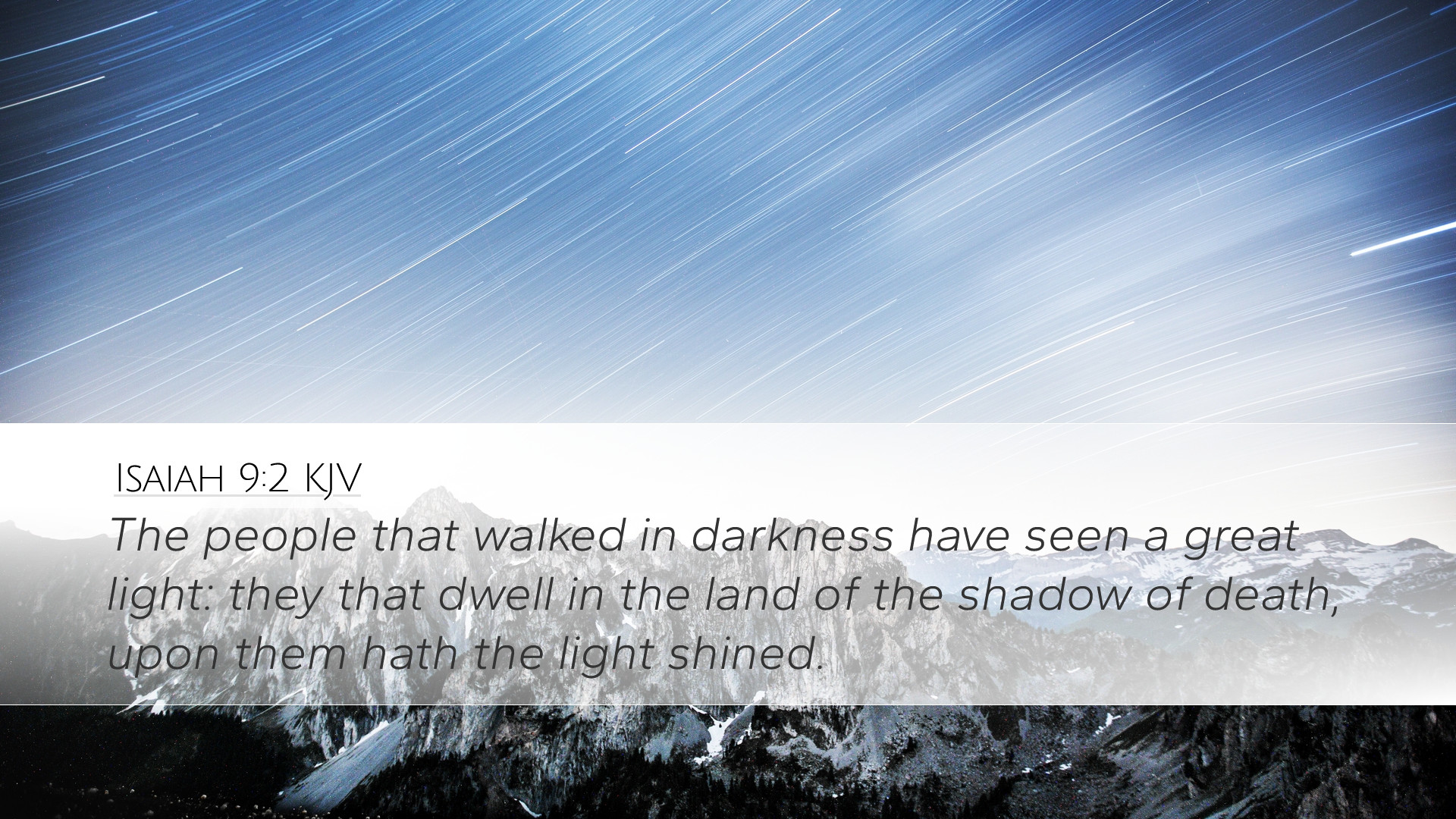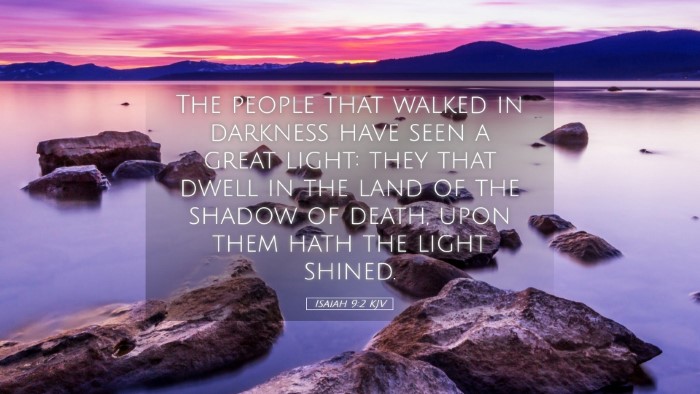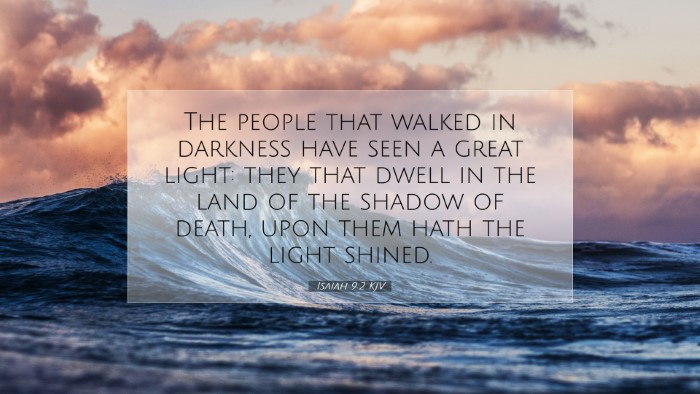Commentary on Isaiah 9:2
Isaiah 9:2 states, "The people that walked in darkness have seen a great light: they that dwell in the land of the shadow of death, upon them hath the light shined." This verse serves as a profound introductory proclamation regarding the coming of the Messiah, full of theological significance and hope. The context of this text is vital as it reflects the plight of Israel at that time and offers a glimpse of the divine intervention promised by God.
Contextual Background
The Book of Isaiah is often referred to as the "fifth gospel" because of its extensive prophecies concerning the Messiah. Here, the prophet Isaiah proclaims a message during a time of great national distress for Israel. The preceding chapters outline the darkness and despair of the nation due to sin and disobedience, which had exposed them to the threats of surrounding enemies, particularly the Assyrians.
Analysis of "The People That Walked in Darkness"
Darkness as a Metaphor: The metaphor of darkness eloquently encapsulates the state of the people. Matthew Henry points out that this darkness represents ignorance, sin, and misfortune. In biblical terms, darkness often signifies a separation from God, moral confusion, and despair in the absence of divine guidance.
Spiritual Condition: Albert Barnes comments on the spiritual condition signified by this darkness. He insists that it reflects not just a physical state but a deeper, intrinsic need for enlightenment through divine revelation. The "great light" referred to represents the breaking in of God’s presence and truth into a world shrouded in sin.
"Have Seen a Great Light"
The phrase "have seen a great light" is pivotal in Isaiah 9:2. Adam Clarke notes that the "light" symbolizes the coming of the Messiah, Jesus Christ, who is the ultimate fulfilment of this prophecy. This light is transformative, illuminating the hearts darkened by sin and leading them into the realization of God’s grace and truth.
-
The Perception of Light: The change from darkness to light involves a significant perceptual shift. The acknowledgment of this light speaks to the sensitivity of the people’s hearts to God’s revelation. This transition from darkness to light also indicates a divine act of grace, showing that God's intervention is crucial in salvation.
-
Universal Implications: Moreover, Matthew Henry emphasizes that this great light is not limited to one particular group; rather, it has implications for all of humanity. The Gospel message proclaimed in the New Testament expands this light beyond Israel, offering hope to all nations.
"They That Dwell in the Land of the Shadow of Death"
The reference to the "shadow of death" draws attention to the severe experience of despair faced by the people. This phrase conveys a sense of impending doom and the human experience of mortality. It serves as a powerful reminder of our fragility and the broader existential threats faced when turning away from God.
In this land, devoid of God, there is a predominant sense of hopelessness. Clarke notes the duality of the phrase; while "shadow" signifies mere proximity to death, it also points towards the possibility of salvation from death through the light that is about to shine. The theme here centers on the darkness of sin and the hope of redemption.
Implications for Theology and Doctrine
The theological implications of Isaiah 9:2 are profound, as they illustrate core doctrines concerning sin, light, and salvation. The presence of Christ, referenced in this prophecy, encapsulates the essence of Christian hope and the transformative power of faith.
-
Christ as the Light of the World: Jesus' teachings often referred back to Isaiah, aligning His mission with this prophecy. John 8:12 records Jesus declaring, "I am the light of the world: he that followeth me shall not walk in darkness, but shall have the light of life." This definitive statement links directly back to the Isaiah prophecy, reaffirming His role as the fulfillment of the light that banishes darkness.
-
Humanity’s Need for Divine Revelation: These verses underpin the need for divine revelation that goes beyond human understanding. The acknowledgment of personal darkness leads to an earnest search for the light that is only found in Christ.
Conclusion
Isaiah 9:2 stands as a testament to hope amid despair, underscoring the essential Christian beliefs about light overcoming darkness. For pastors, theologians, and students, this verse encapsulates the essence of God’s promise to His people and the fulfillment of that promise in the life of Jesus Christ. The great light is not just an event; it embodies the ongoing presence of Christ in believers' lives, illuminating their paths and offering hope to a world still enveloped in darkness. The message encourages an authentic response of faith and commitment to the illuminating truth of God.


